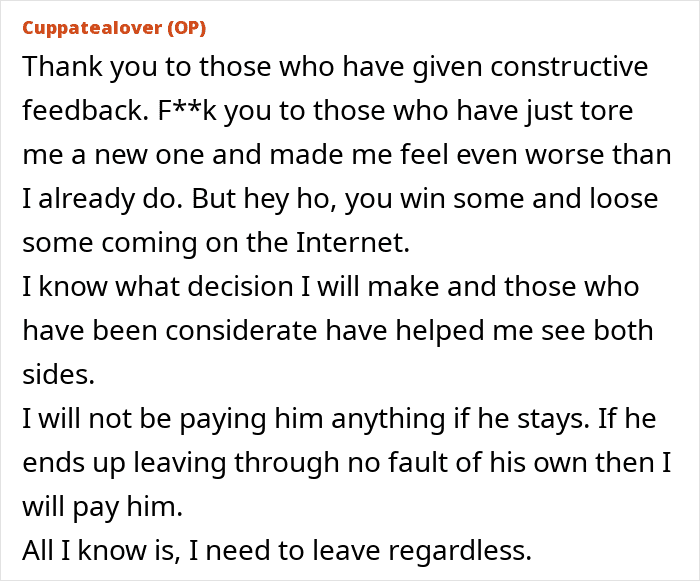Breakups are rarely simple. Emotions run high, feelings get bruised—it’s a lot. And if the people involved were living together, things get even harder. On top of the heartbreak, there’s the awkward business of packing up your belongings, figuring out shared expenses, and dealing with all the messy details no one wants to face.
That’s exactly what one woman found herself going through. While still in the relationship, her partner decided to renovate their home, and she agreed to cover half the costs. But they broke up before she paid her share. Now that she’s moved out and won’t benefit from the upgrades, she refuses to pay. Her ex, understandably, is upset.
So, who’s in the right here? Should she still pay, or is it fair to walk away?
RELATED:While the woman was living together with her partner, she promised to cover half the renovation costs of their shared home

But they broke up before she paid, and after moving out, she no longer thinks she should








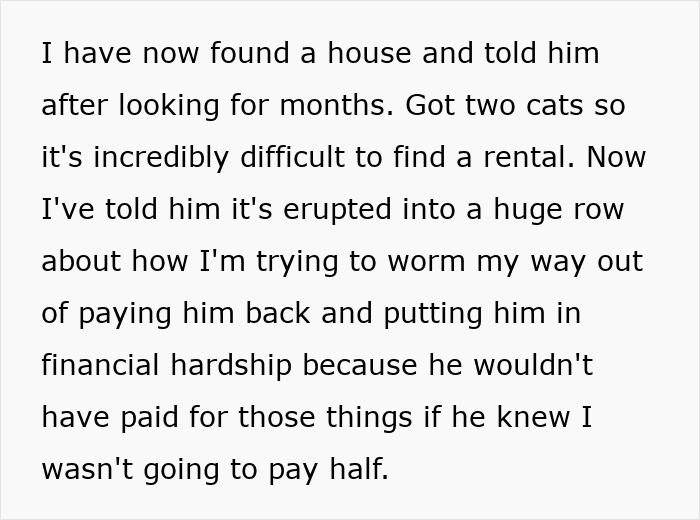
How to break up when you live together

Breaking up when you share a home is rarely straightforward.
This story, for example, split readers when they weighed in on what should happen next: some argued the author should pay the renovation share she promised, and others felt she shouldn’t if she won’t be living in the improved home.
What it really shows is how much extra baggage comes with ending a relationship when you’ve been under the same roof, compared to breaking up while living separately.
However, even though the work won’t vanish, you can make it easier with a few practical, widely shared tips.
Healthline suggests planning your breakup conversation thoughtfully. Offer a little warning without the dreaded “we need to talk,” which can send anyone into a spiral. Aim for a calm, low-stress time so you can both speak honestly, and try to be clear and kind with your wording.
Now for the logistics.
Elle Harikleia at The Everygirl recommends separating the relationship talk from the nuts-and-bolts planning:
“It can be tempting to lead a breakup conversation with a dramatic announcement that you’re moving out,” she acknowledges.
“While the question of who is going where will naturally surface during a breakup conversation, be sure to do yourself and your partner the service of having your first few discussions about just the relationship,” she says.
Since it’s tough to make practical decisions when emotions are running high, set a separate time to cover the details. One of those details should be a firm move-out date. Deciding this early helps everything else fall into place. Yes, leases and mortgages complicate things, but those are solvable with communication.
Loop in your landlord if needed. Breakups in cohabiting situations aren’t new to them, and they might allow a lease break or a sublet to ease the transition.
Until someone moves, you’ll likely have a period of living together post-breakup. Create clear ground rules for that window: who sleeps where, how chores are handled, and how you’ll share common spaces.
“Talk through specific days of the week that you or your ex could have friends over so that the other person can plan to be out,” Harikleia advises.
Try to build in private time at home so each of you can process, grieve, and decompress.
Breakups are never pleasant, but they are navigable. With time, support from friends and family, and a bit of structure, you can get through it—and eventually use it as a starting point for a new chapter.
The author later shared more details in the comments
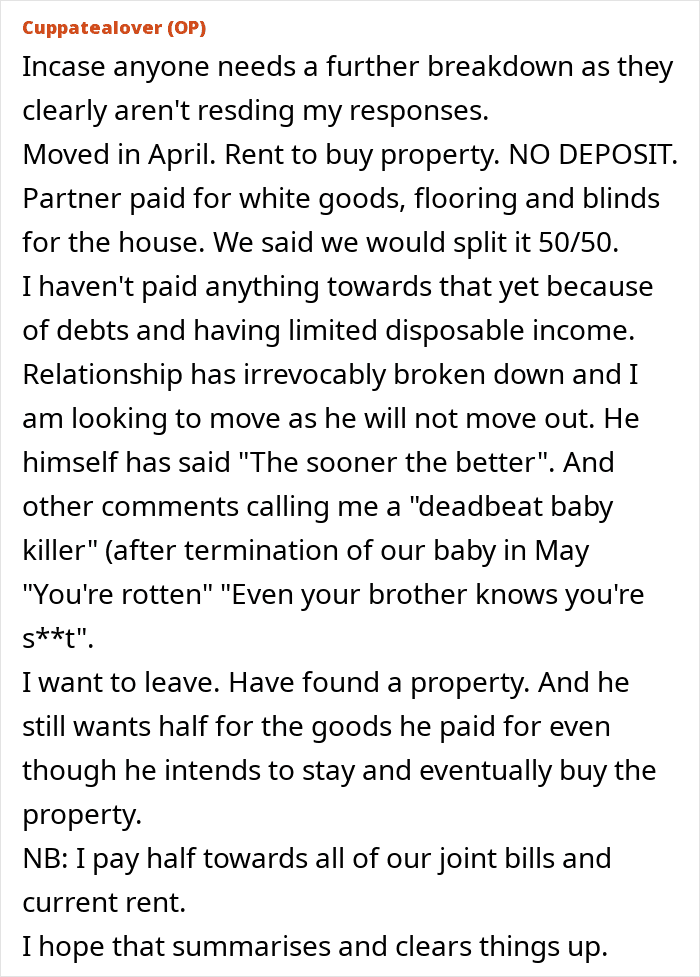
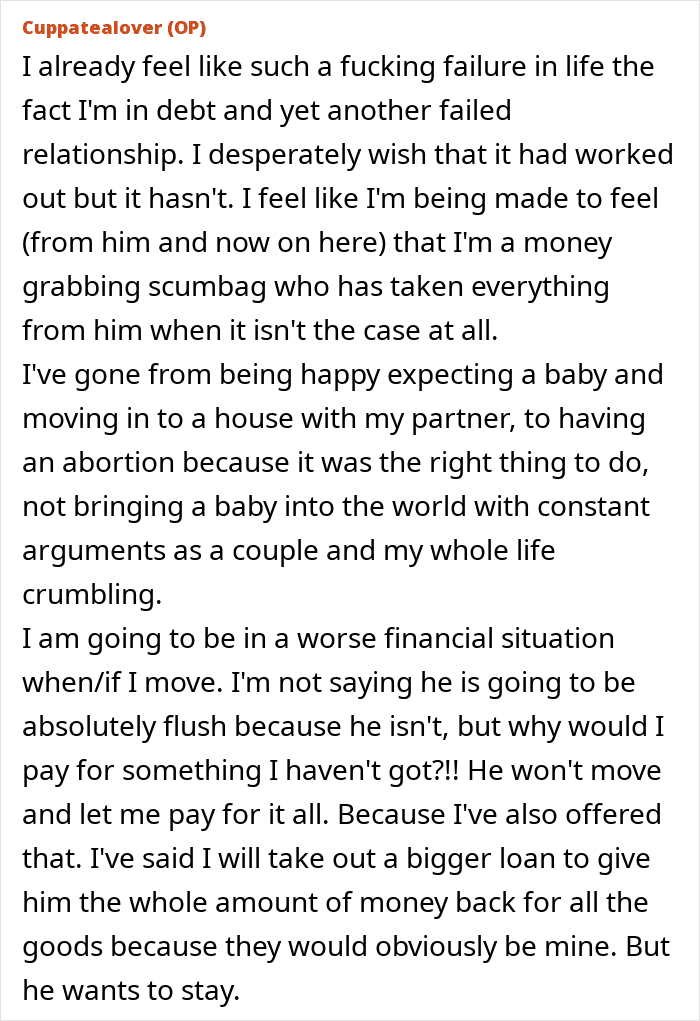
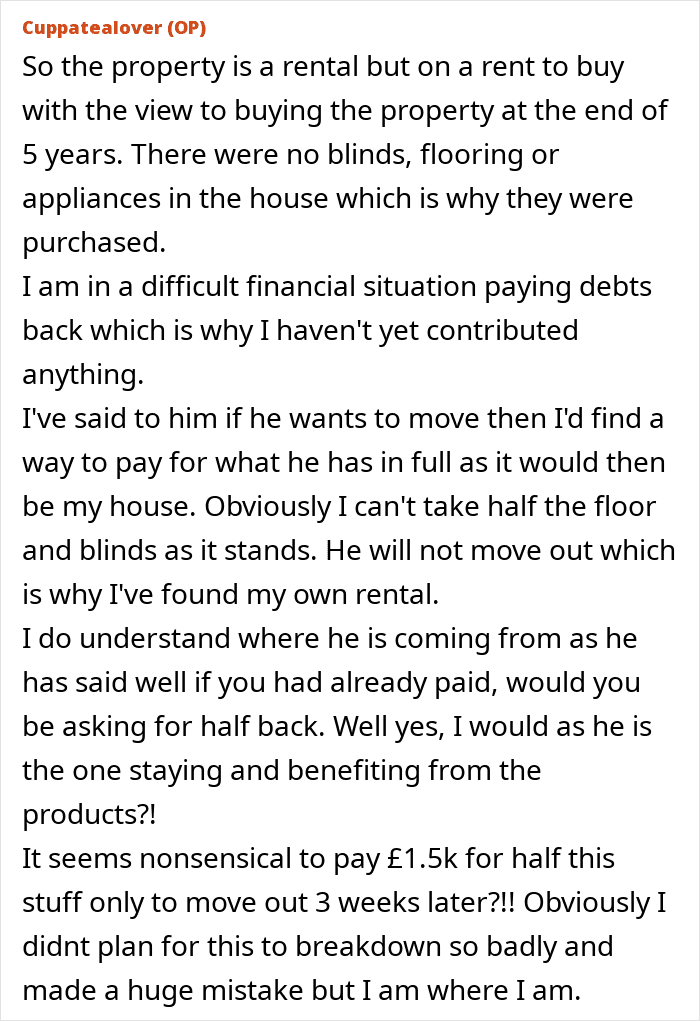
Readers were divided: some argued it wasn’t the woman’s responsibility, while others insisted she should pay her share
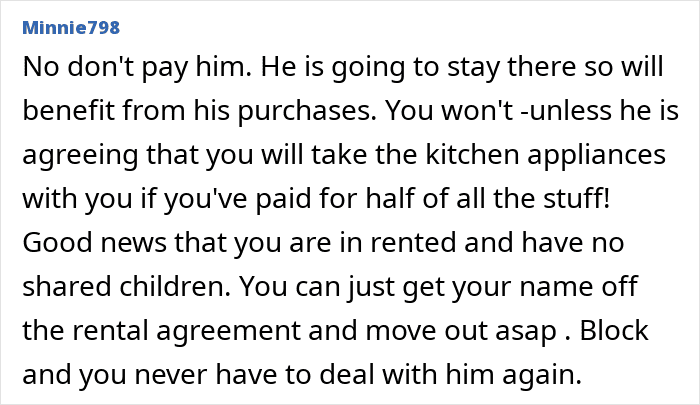
















In a follow-up, she revealed the choice she ultimately made
